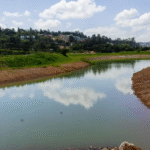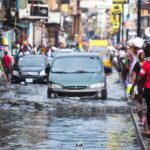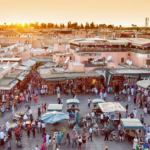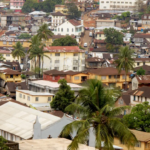Posts tagged with 'Kigali'
Walking through Nyandungu Eco-Park in Kigali, Rwanda, it’s difficult to imagine that just a few years ago, industrial machinery and bedraggled grasses stood where lush trees and flowers now grow. Like in many wetlands across the city, the incursion of polluting industry ...

As cities try to restore the benefits of natural systems by mimicking how ecosystems function, one option they can use is nature-based solutions (NBS). However, cities often struggle to determine which types of interventions best suit their local context, due ...

Despite accounting for less than 3% of global terrestrial area, cities have had an outsized impact on our approach to planetary boundaries, affecting biodiversity and consumption of materials and energy. Studies show that cities have become responsible for 78% of carbon emissions, ...

Sprawl is a known and widespread challenge for rapidly growing cities across the world. Unplanned, inefficient development encroaches on natural resources and ecosystems, often reaching far beyond established transit networks. Residents of sprawling urban areas often face socioeconomic vulnerabilities and ...

Transforming Transportation 2025 is in the books. After a year of geopolitical turmoil and escalating climate impacts, the transport sector is seeing rapid change on multiple fronts. Across two days of events, leaders in government, business, academia and civil society ...

Africa’s cities, from large metropolises to smaller towns, are increasingly characterized by growing urban sprawl. Kinshasa, Democratic Republic of Congo, is expanding by about 2,000 people and 5 hectares (10 football fields) every day, according to a World Bank estimate. Kumasi, an intermediary ...

In a time of polycrises – from economic and political instability to health and environmental emergencies – water is a resource that cannot be relegated to the background. Especially in urban environments, water demand is ever-increasing and in too many ...

Alexandra Township is a 20-square-block enclave in the heart of Johannesburg, South Africa’s northern suburbs. Established in 1902, the township was built to house 750,000 residents. Today, it is home to more than 1.2 million. Despite efforts to increase waste ...

Like many parts of Africa, motorcycles are the most popular form of transportation among Rwanda’s 13.3 million people. Whether they’re commuting to work or school, transporting jugs of water from the local taps or just running everyday errands, people on ...

In Bogotá, Colombia, over 3,000 people die prematurely each year due to exposure to air pollution—namely from PM2.5, a fine particulate matter produced by vehicle exhaust, burning and industrial outputs. Bogotá is not alone: According to 2021 data, of 174 ...

As dense hubs of diverse talent, skills and innovation, cities are perfect places for public-private collaboration. In light of urgent calls from the international community for solutions, the wealth of creativity and expertise on urban sustainability in Global South cities can ...

In the Wadala neighborhood of Mumbai, representatives from Kigali, Durban and Mauritius filed into a low, yellow-walled room. They took their seats in rows equipped with desktop computers. Ordinarily, these desks would be filled with the staff responsible for tracking real-time ...

“Climate change is affecting cities all around the world, and Freetown is no exception.” That’s what Eugenia Kargbo, Freetown’s Chief Heat Officer, told UrbanShift during the City Academy hosted in Kigali last year. Through her role—the first of its kind in ...

As cities become more congested, traffic fatalities continue to rise and the impacts of climate change escalate, the need for sustainable and safe transportation solutions has reached a critical juncture. The World Health Organization reports an alarming statistic: 186,300 children ...

Climate change is impacting cities and their residents in many profound ways, from poor air quality to flooding to biodiversity loss and extreme heat. Now, with the help of a new tool, select cities can access localized, integrated data to ...




























